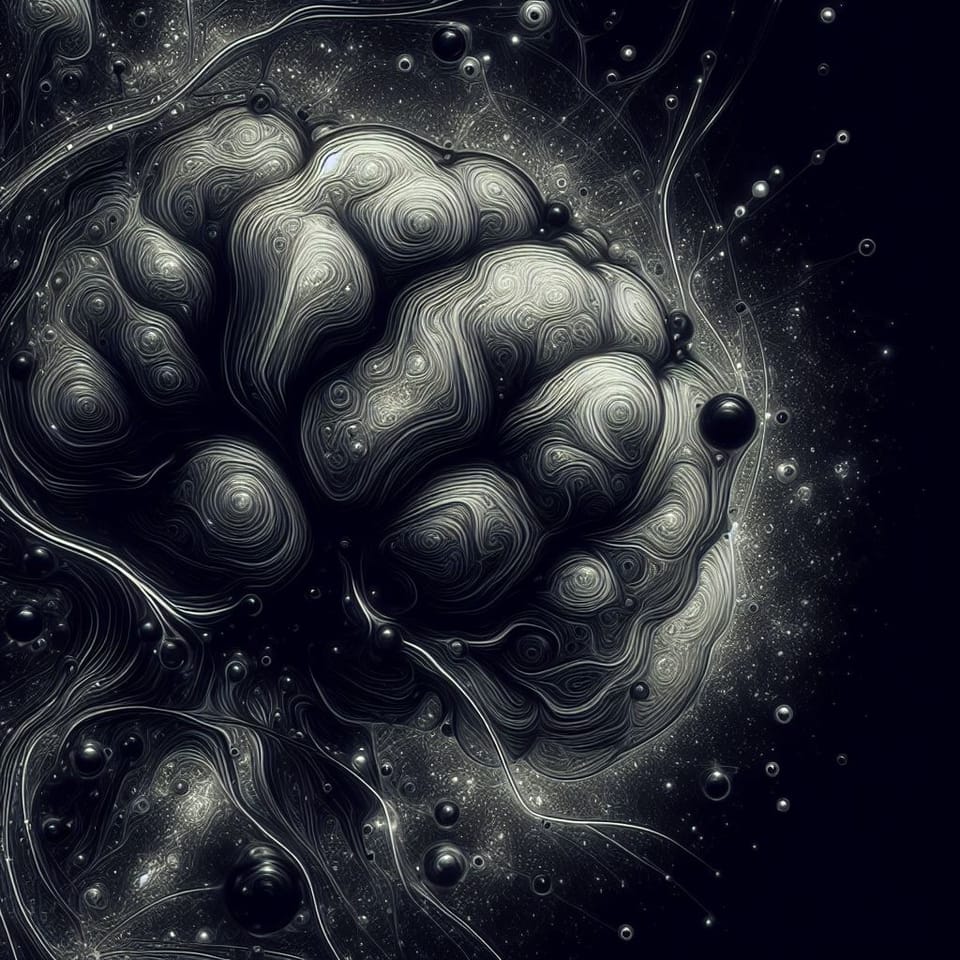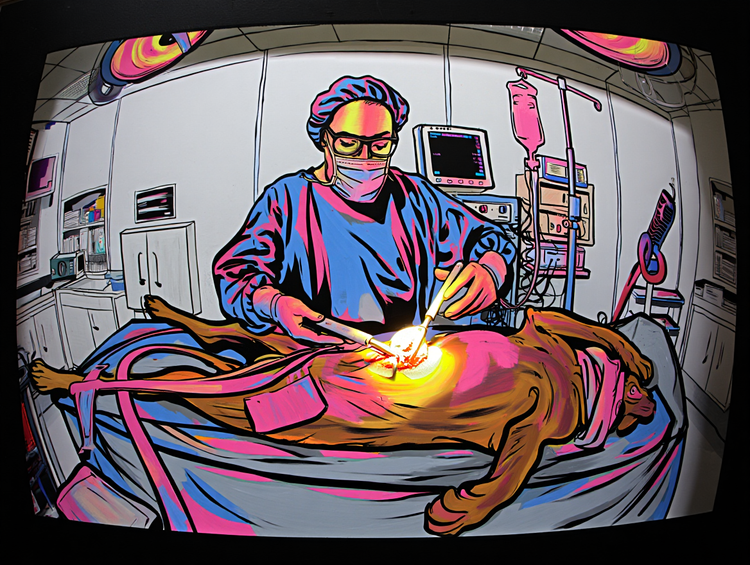Feeling Down? Blame the Cats

I don't think they're going out of their way to do it, but it's possible that most human misery can be attributed to cats. It's certainly not intentional, and not even quite their fault. Then again, if they could fully realize the extent of the suffering their behavior causes, would they do anything differently? Probably not. They're still cats.
That inherent cattiness also makes them the perfect host for an organism that has wreaked havoc on human well being: Toxoplasma gondii (friends call me, "Toxo"). A parasite that needs cats to survive. Not every cat is infected, and individuals will only shed the parasite for a few weeks. In fact, at any given time, only about 1% of cats are shedding it at any given time. But there are a lot of cats in the world (only one ever made it off planet, though).
Cats are crucial for Toxo to complete its life cycle, but it does need at least one other animal. Ideally, it'd prefer something that a cat eats, since that's how it gets back to its definitive host. But tragically, it's pretty nonselective. Toxo's not averse to infecting pretty much any other warm-blooded creature: grizzly bears to penguins, dolphins, pandas, monkeys and turkeys. And it's got no problem infecting people.
It forms little cysts in their tissues. Having made its way into the intermediate host's body, it needs protection from the immune system. So it just chills for awhile in the tissue– barely noticeable (or vulnerable)– and waits to get eaten by a cat.

This is easier said than done, if you happen to be encysted in a grizzly bear. Toxo is kind of an antisocial anarchist though: it really should just infect mice and small birds and other things that cats eat, but it doesn't give a cat crap! It just forms the cysts, and hopes for the best!
If it just stopped there, well maybe we could forgive this inconsiderate colonizing. I mean, it is only 10 square micrometers, hard to make an honest living out in the world when you're that small. But Toxo is an especially naughty parasite. It does more than just catch a ride in its host's "pre"-meat. It wants to make sure it gets eaten. It takes over the host's controls: i.e. it's mind.
Toxo loves being in the brain. It loves turning intermediate hosts crazy. A mouse with a Toxo infection, for example, will do insane things. What's the craziest thing that a normal mouse would do? Become desperately attracted to cat pee? Yup, Toxo does that. Seriously. Once it's in the brain, it makes mice suicidally horny for the smell of cat pee. It's like a French aristocrat falling in love with the underside of a guillotine during the Reign of Terror.
Diabolical, but evolutionarily brilliant. But the horror of Toxo is its laziness. Neuronal hijacking happens in "off-target" animals, including humans. Undoubtedly it has effects on the minds of these species, but we're the most self-absorbed one it infects, and much time has been spent studying the connection between toxoplasmosis and human neuropsychiatric disorders.
First of all, Toxo is widespread. To comprehend the potential impact on human mental health, you have to look at the numbers. There are a lot of cats in the world, and it's reasonably estimated that over 30% of the entire human population has been infected. In the US, it's estimated at a mere 40 million people. In some countries, it's higher than 60%. That's a lot of opportunity to get inside people's minds.
And there's concerning evidence that not just some neuropsychiatric diseases like depression and anxiety are related to Toxo, but that many are! It's been linked to depression, generalized anxiety disorder and OCD, Alzheimer's, epilepsy, bipolar disorder, and even brain cancer and car crashes! Somewhat less disturbingly, it might be responsible for some cases of anosmia (loss of smell), which might explain why "crazy cat people*" aren't bothered by the odor of a dozen used litter boxes.
Think of the estimated 2,600,000,000 people with this parasite, and the fact that evidence of infection is much higher in people with neuropsychiatric disorders. In at least one study, it was the number one identifiable variable for schizophrenia. Number one. There's compelling evidence that it might play a role in suicide. If the numbers are even close to true, given the prevalence of this parasite in the human population, it's responsible for an extraordinary amount of human misery. Like, waaaaay more than Nickelback.

This is dark stuff for humanity, but we're not the only ones that Toxo mind***ks. All sorts of other creatures are susceptible, and all it takes is a little cat poo to get the ball rolling. For example, storm runoff carries Toxo into the ocean, where cute, adorable sea otters get infections in their cute little brains, triggering seizures that that sound like dinner bells to great white sharks! Don't feel too bad for the sea otters though, they're actually ferociously predatory sex villains.

The magnitude of this parasite's impact on human and non-human animals is truly stunning. We don't really know the extent of the harm it's causing across the world. It could easily be the leading cause of depression in turkeys. The good news is that you can help! Did you know, that by simply getting your cats' feces into the garbage less than 24 hours after it leaves the warm confines of your feline's colon, you can arrest Toxo's life cycle?! There are of course, other ways to prevent infection, but some practicable and neighborly-respectable actions like not feeding your cat raw meat and keeping it indoors also go a long way to battle this sinister, brain-meddling parasite.
It's also good news that Toxo is becoming better known. Ridding this parasitic disease could have enormously beneficial effects on human and animal health. Currently, smart people are working on it, looking into drugs like the mellifluously-named "dihydrotriazine JPC-2067-B87", as well as vaccines to prevent infection. Maybe we'll get there soon, maybe it'll take some time, maybe it'll prove too difficult or costly. But if we're successful, the future looks incomparably brighter in the absence of this pernicious parasite.
*Of note, Toxo appears to infect more men than women, so the trope of the crazy cat lady is another cis-hetero normative product of the patriarchy. Obvs.





Comments ()